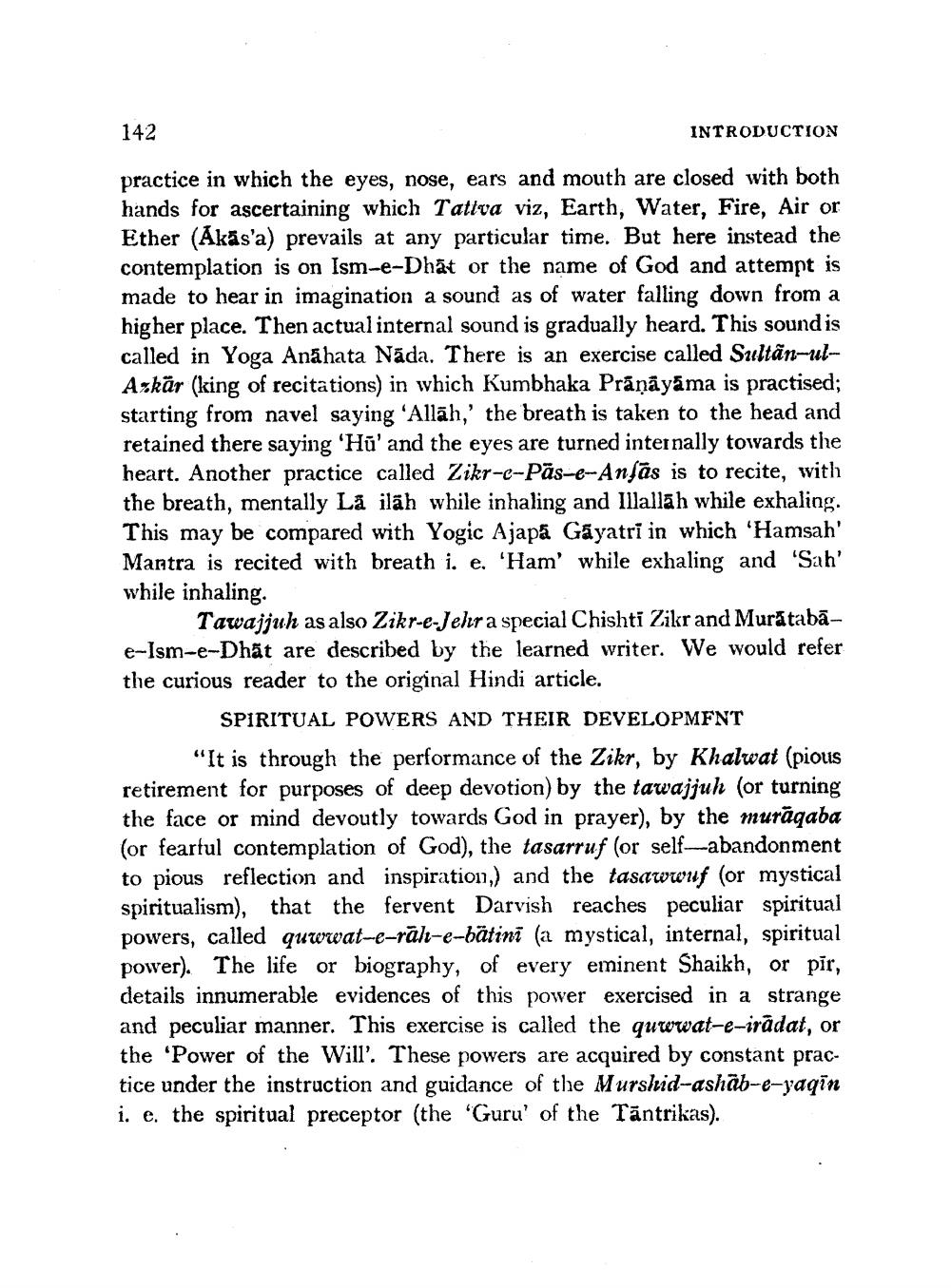________________
142
INTRODUCTION
practice in which the eyes, nose, ears and mouth are closed with both hands for ascertaining which Tattva viz, Earth, Water, Fire, Air or Ether (Akäs'a) prevails at any particular time. But here instead the contemplation is on Ism-e-Dhāt or the name of God and attempt is made to hear in imagination a sound as of water falling down from a higher place. Then actual internal sound is gradually heard. This sound is called in Yoga Anahata Nāda. There is an exercise called Sultân-ulAzkār (king of recitations) in which Kumbhaka Prāņāyāma is practised; starting from navel saying 'Allāh,' the breath is taken to the head and retained there saying 'Hû' and the eyes are turned internally towards the heart. Another practice called Zikr-e-Pas-e-Anfas is to recite, with the breath, mentally Lâ ilâh while inhaling and Illallāh while exhaling. This may be compared with Yogic Ajapā Gayatri in which 'Hamsah' Mantra is recited with breath i. e. 'Ham' while exhaling and 'Sah' while inhaling.
Tawajjuh as also Zikr-e-Jehra special Chishti Zikr and Murătabā - e-Ism-e-Dhat are described by the learned writer. We would refer the curious reader to the original Hindi article.
SPIRITUAL POWERS AND THEIR DEVELOPMFNT
"It is through the performance of the Zikr, by Khalwat (pious retirement for purposes of deep devotion) by the tawajjuh (or turning the face or mind devoutly towards God in prayer), by the murāqaba (or fearful contemplation of God), the tasarruf (or self-abandonment to pious reflection and inspiration, and the tasawwuf (or mystical spiritualism), that the fervent Darvish reaches peculiar spiritual powers, called quwwat-e-ral-e-batini (a mystical, internal, spiritual power). The life or biography, of every eminent Shaikh, or pir, details innumerable evidences of this power exercised in a strange and peculiar manner. This exercise is called the quwwat-e-irādat, or the Power of the Will'. These powers are acquired by constant practice under the instruction and guidance of the Murshid-ashâb-e-yaqin i. e. the spiritual preceptor (the 'Guru' of the Tantrikas).




